Eating Our Way Out of the Ocean’s Problems — A Chef’s Perspective
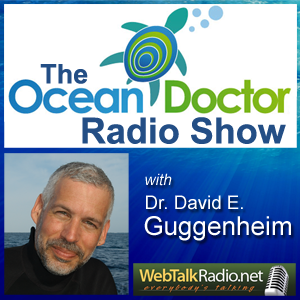 |
? |
August 15, 2011: Our special guest is National Geographic Fellow and acclaimed chef, author, and speaker Barton Seaver, who seeks to restore our relationship with the ocean, the land, and with each other through dinner. His new book is For Cod and Country: Simple, Delicious, Sustainable Cooking. If you’re not hungry, you will be by the end of this show! Also: A giant sea monster discovered in the UK and a close encounter with the largest animal that’s ever lived.
The Ocean Doctor airs weekly on WebTalkRadio.net. Want to listen on your iPod, iPhone or mp3 player? Download the mp3 file or subscribe on iTunes and don’t miss a single episode. Or listen to us on your iPhone, Android phone, WebOS phone, BlackBerry or tablet, including the iPad, with the free Stitcher SmartRadio app.?See the complete list of episodes. Follow The Ocean Doctor on Twitter — Become a Fan on Facebook! Submit a question and I’ll try to answer it on the air. Even better, record your question or comment on our special message line and I might play it on the air. Call: (805) 619-9194. You can also leave questions and comments for this episode below. Like the show? Learn how to become a sponsor.
Podcast: Play in new window | Download
Eating Our Way Out of the Ocean’s Problems — A Chef’s Perspective
National Geographic Fellow and acclaimed chef, author, and speaker Barton Seaver wants to restore our relationship with the ocean, the land, and with each other through dinner.
Seaver’s childhood in Washington, D.C., centered around the family dinner table. After graduating with honors from the Culinary Institute of America, he traveled extensively and found work at a small family restaurant in southern Spain. The casual, ingredient-based cooking style there would prove to be an important influence in his perception of food as an essential part of community.
A transformative trip to Morocco landed him in the seaside village of Essaouiera, where survival is directly linked to the oceans. His experience with the locals, who taught him generationsold fishing methods, helped shape his belief that, at its root, sustainability is both an ecological and a humanitarian issue.
Seaver returned to D.C. in 2005 and began his career as a chef, first with Jos? Andr’s at Jaleo, then as executive chef of Caf? Saint-Ex and later at its sister restaurant, Bar Pilar. In 2007, Seaver became executive chef of the sustainable seafood restaurant Hook in Georgetown, which made Bon App?tit’s Top 10 Eco- Friendly Restaurants and the Washington Post’s Top 50, Washingtonian Magazine’s Top 100. In a single year, the restaurant served 78 species of seafood, and Seaver’s devotion to sustainability led to national media attention.
The Monterey Bay Aquarium recognizes Seaver as a sustainability leader, and in 2008 he received both the Seafood Choices Alliance’s Seafood Champion Award and the title ?Rising Culinary Star of the Year? from the Restaurant Association of Metropolitan Washington. In 2009, he was named Esquire magazine’s Chef of the Year.
Since then, he has focused on using his knowledge and experience to link seafood to broader socioeconomic, ecological, health, and cultural issues. Locally he sits on the board of D.C. Central Kitchen, an organization fighting hunger through personal empowerment, job training, and life skills. He also collaborates with the School Nutrition Association, the Center for Health and the Global Environment at Harvard Medical School, Future of Fish, and other non-profit organizations supportive of his message that food is a catalyst for restoring health to ourselves, our communities, and our planet.
As a National Geographic Fellow, Seaver works with the global partnership initiative Mission Blue to increase awareness of the ocean crisis and inspire action. In 2010, he gave a TED Talk on sustainable seafood aboard the National Geographic Endeavour in Ecuador. He developed a list of ocean friendly substitutes for popular yet depleted seafood species, and co-created the Seafood Decision Guide to help consumers evaluate seafood based on health and environmental factors. Currently he hosts the National Geographic Web series Cook-Wise, where he introduces the fishermen, farmers, and scientists working to bring more sustainable food to the table.
Seaver’s recipes and insights have been featured in Cooking Light, O: The Oprah Magazine, Every Day with Rachael Ray, Lonny Magazine, ChopChop, the Washington Post, Fortune, TreeHugger.com, American University’s Kogod Magazine, and Vanity Fair. He has appeared on CNN, NPR’s All Things Considered and Weekend Edition, and Bloomberg Radio. He is also a regular guest on the radio show National Geographic Weekend with host Boyd Matson.
His three-part television series In Search of Food tells the story of the locavore movement through local farmers, chefs, and food specialists in New York, San Francisco, and Minneapolis. The series premiered on the Ovation network in May 2011.
A highly sought speaker, Seaver has been invited to give lectures at Harvard University, Yale University, Culinary Institute of America, National Geographic, and Duke University, as well as serve on numerous conference panels, including at the Aspen Environmental Forum, Blue Vision Summit, the National Restaurant Association Annual Convention, the Seafood Choices Alliance Sustainable Seafood Summit, and the Savannah Oceans Exchange. He has been selected to give featured or keynote addresses at annual meetings for Basel World 2011, The Nature Conservancy, School Nutrition Association, American Culinary Federation, and American Fisheries Society.
Like Barton on Facebook?and follow him on?Twitter
|
|
The Pliosaur “Sea Monster”
A Paddler’s Close Encounter with a Blue Whale
|
Visit msnbc.com for breaking news, world news, and news about the economy |

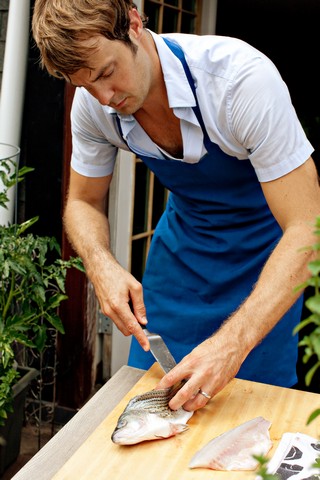

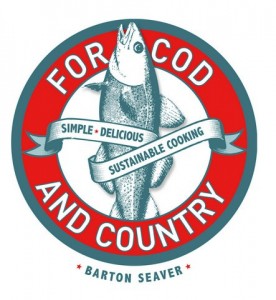
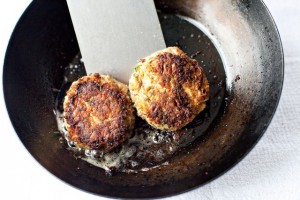
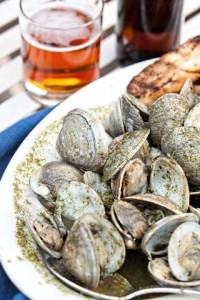
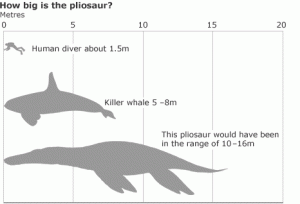
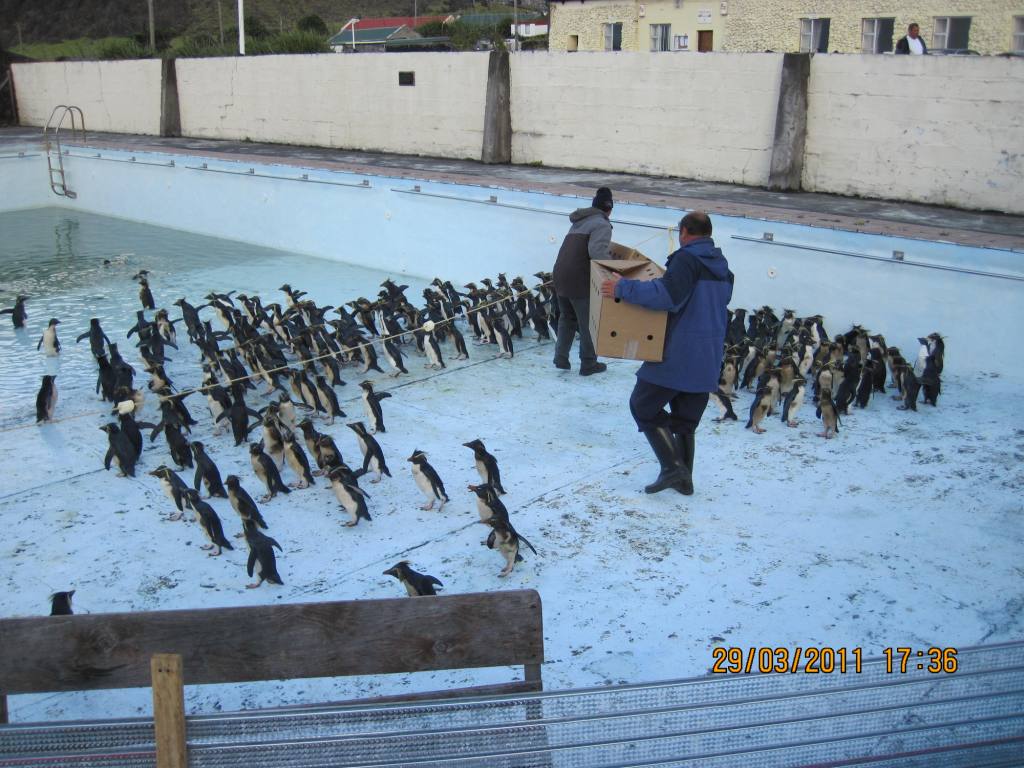



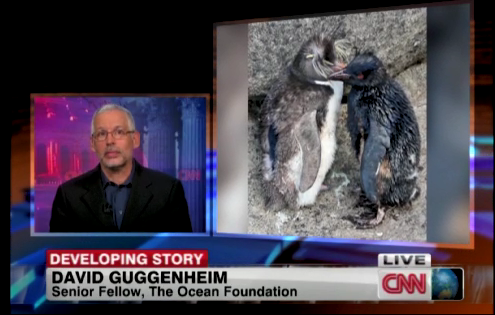

I appreciate all that Chef Seaver has done to reduce the impact humans have on the ocean fish population. His example is a step towards a path of less environmental degradation.
The ultimate way to a healthier planet is to eat no fish and no animals. Eating a plant-based, vegan diet is the most sustainable way to live lightly on our planet.